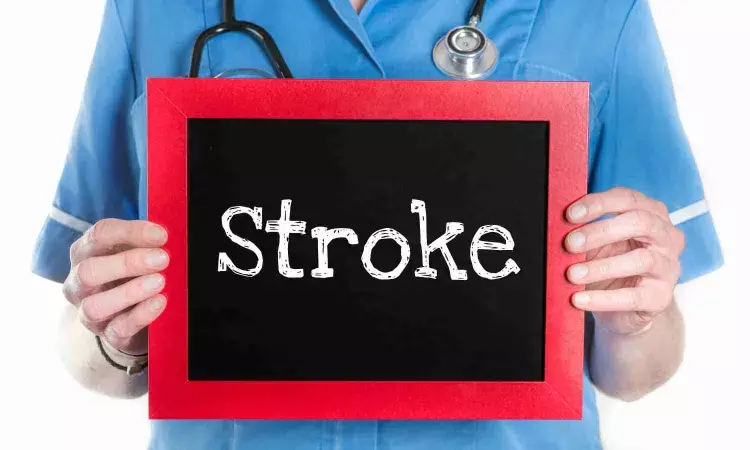- Home
- Medical news & Guidelines
- Anesthesiology
- Cardiology and CTVS
- Critical Care
- Dentistry
- Dermatology
- Diabetes and Endocrinology
- ENT
- Gastroenterology
- Medicine
- Nephrology
- Neurology
- Obstretics-Gynaecology
- Oncology
- Ophthalmology
- Orthopaedics
- Pediatrics-Neonatology
- Psychiatry
- Pulmonology
- Radiology
- Surgery
- Urology
- Laboratory Medicine
- Diet
- Nursing
- Paramedical
- Physiotherapy
- Health news
- Fact Check
- Bone Health Fact Check
- Brain Health Fact Check
- Cancer Related Fact Check
- Child Care Fact Check
- Dental and oral health fact check
- Diabetes and metabolic health fact check
- Diet and Nutrition Fact Check
- Eye and ENT Care Fact Check
- Fitness fact check
- Gut health fact check
- Heart health fact check
- Kidney health fact check
- Medical education fact check
- Men's health fact check
- Respiratory fact check
- Skin and hair care fact check
- Vaccine and Immunization fact check
- Women's health fact check
- AYUSH
- State News
- Andaman and Nicobar Islands
- Andhra Pradesh
- Arunachal Pradesh
- Assam
- Bihar
- Chandigarh
- Chattisgarh
- Dadra and Nagar Haveli
- Daman and Diu
- Delhi
- Goa
- Gujarat
- Haryana
- Himachal Pradesh
- Jammu & Kashmir
- Jharkhand
- Karnataka
- Kerala
- Ladakh
- Lakshadweep
- Madhya Pradesh
- Maharashtra
- Manipur
- Meghalaya
- Mizoram
- Nagaland
- Odisha
- Puducherry
- Punjab
- Rajasthan
- Sikkim
- Tamil Nadu
- Telangana
- Tripura
- Uttar Pradesh
- Uttrakhand
- West Bengal
- Medical Education
- Industry
High C-Reactive Protein Levels May Double Stroke Risk, Study Finds

China: A recent study published in the Journal of the American Heart Association has illuminated the association between C-reactive protein (CRP) levels and stroke risk, offering crucial insights into how inflammation may influence different types of stroke.
The UK Biobank study found that increasing or consistently elevated CRP levels were linked to a higher risk of stroke. Elevated CRP was associated with a 44% increased risk of any stroke and a 65% greater likelihood of ischemic stroke. The highest risk was observed in individuals with persistently high CRP, nearly doubling their chances of hemorrhagic stroke. Genetic analysis further confirmed CRP’s significant connection to stroke risk.
Stroke affects one in four individuals worldwide, ranking as the second leading cause of death and a major contributor to disability. Ischemic strokes account for about 80% of cases. Inflammation plays a key role in stroke risk, with CRP serving as a recognized biomarker. While most studies focus on single CRP measurements, variations over time may offer better risk assessment. Genetic factors also influence stroke susceptibility, yet no research has fully explored the genome-wide link between CRP changes and stroke risk. Understanding these connections could improve stroke prediction and prevention strategies.
Against the above background, Jun Lyu, Department of Clinical Research Jinan University First Affiliated Hospital Guangzhou, Guangdong, China, and colleagues sought to investigate the relationship between changes in CRP levels and the risk of stroke and its subtypes.
For this purpose, the researchers analyzed UK Biobank data to explore the link between CRP changes and stroke risk using Cox proportional hazards regression. They further conducted genetic analyses, including genetic correlation, pairwise genome-wide association studies, and polygenic risk scores. The study included 14,754 participants with a median follow-up of 10.4 years.
The study led to the following findings:
- Participants with an increased CRP percentage had a higher risk of any stroke (HR 1.44) and ischemic stroke (HR 1.65).
- Those whose CRP levels became high had an increased risk of any stroke (HR 1.45), while those with persistently high CRP faced the greatest risk (HR 1.74).
- Similar trends were observed for ischemic stroke.
- Persistently high CRP levels were also linked to a greater risk of hemorrhagic stroke (HR 1.91).
- Genetic analysis revealed a significant genetic correlation between CRP and stroke.
- Five shared genomic regions between CRP and stroke were identified.
- Individuals with both high stroke polygenic risk scores and elevated or persistently high CRP levels had the highest stroke risk.
This study highlights the association between CRP changes and stroke risk, showing that elevated or persistently high CRP levels increase the likelihood of any stroke and ischemic stroke. In contrast, hemorrhagic stroke is linked only to sustained high CRP levels. Genetic analyses further revealed shared biological pathways between CRP and stroke, identifying five common genomic regions. Individuals with both high stroke polygenic risk scores and elevated or persistent CRP levels faced the greatest stroke risk.
"These findings emphasize the importance of monitoring CRP changes over time for improved stroke risk assessment and may inform future prevention strategies," the authors concluded.
Reference: https://doi.org/10.1161/JAHA.124.03808
Dr Kamal Kant Kohli-MBBS, DTCD- a chest specialist with more than 30 years of practice and a flair for writing clinical articles, Dr Kamal Kant Kohli joined Medical Dialogues as a Chief Editor of Medical News. Besides writing articles, as an editor, he proofreads and verifies all the medical content published on Medical Dialogues including those coming from journals, studies,medical conferences,guidelines etc. Email: drkohli@medicaldialogues.in. Contact no. 011-43720751


